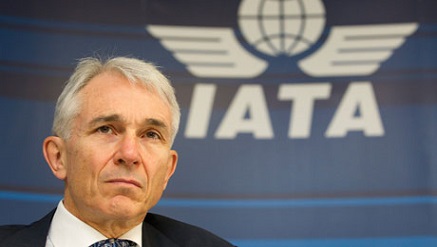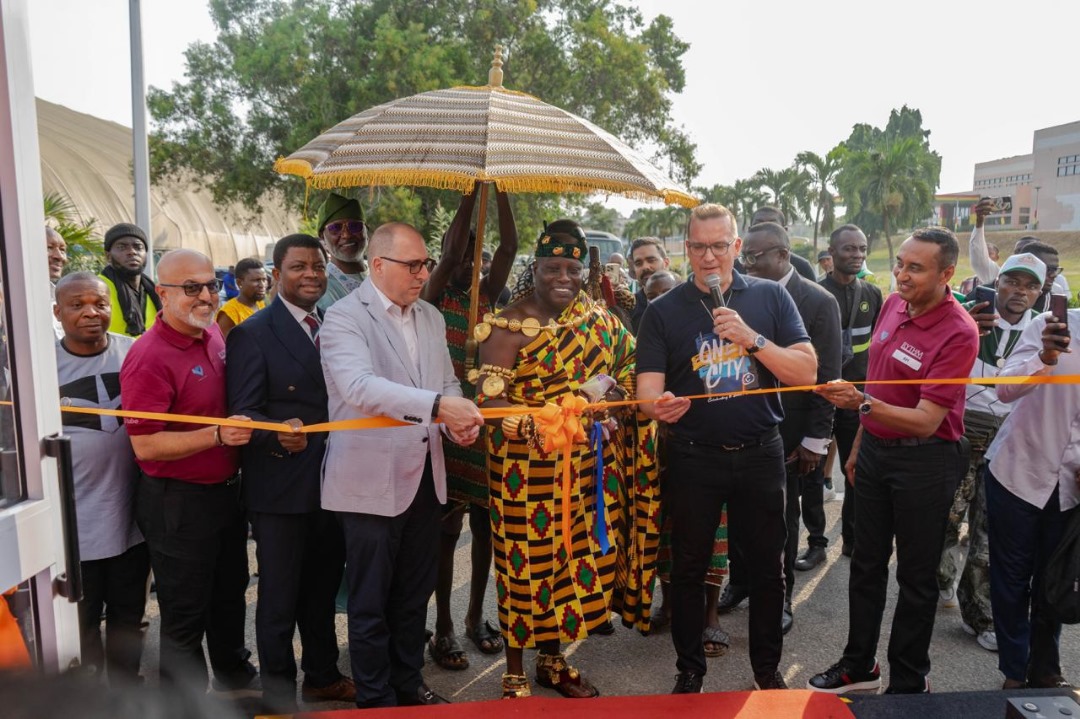General News
IATA Rues 2014 as Africa’s Slowest Demand for Air Travel

The International Air Transport Association (IATA) announced global passenger traffic results for the full year of 2014 showing demand (revenue passenger kilometers or RPKs) rose 5.9% compared to the full year of 2013.
This 2014 performance was above the 10-year average growth rate of 5.6% and the 5.2% annual growth experienced in 2013 compared to 2012.
Meanwhile, IATA identified that African airlines experienced the slowest annual demand growth, up 0.9% compared to 2013. With capacity up 3.0%, load factor fell 1.5 percentage points to 67.5%, the lowest among the regions.
Capacity rose 5.6% last year, with the result that load factor climbed 0.2 percentage points to 79.7%.
All regions saw demand grow in 2014. More than half of the growth in passenger travel occurred on airlines in emerging markets including Asia-Pacific and the Middle East.
In recent months domestic market growth played a large role in driving growth.
This is owed mainly to a pick-up in Chinese domestic travel which expanded by some 11% in 2014 over the previous year.
“Demand for the passenger business did well in 2014. With a 5.9% expansion of demand, the industry out-performed the 10-year average growth rate. Carriers in the Middle East posted double-digit growth while results in Africa were barely above previous-year levels. Overall a record 3.3 billion passengers boarded aircraft last year—some 170 million more than in 2013. While it is clear that people will continue to travel in growing numbers, there have been signs in recent months that softening business confidence is translating into a leveling off of international travel demand,” said Tony Tyler, IATA’s director general and CEO.
International Passenger Markets
International passenger traffic rose 6.1% in 2014 compared to 2013. Capacity rose 6.4% and load factor slipped 0.1 percentage points to 79.2%.
Asia Pacific carriers recorded an increase of 5.8% compared to 2013, which was the largest increase among the three biggest regions.
However, traffic has been broadly flat over the past four months or so amid signs of a slowdown in regional production activity, although trade volumes have remained strong. Capacity rose 7.0%, pushing down load factor 1.1 percentage points to 76.9%.
European carriers’ international traffic climbed 5.7% in 2014. Capacity rose 5.2% and load factor rose 0.6 percentage points 81.6%. Robust travel on low fare airlines as well as airlines registered in Turkey offset economic weakness and risks in the region.
North American airlines saw demand rise 3.1% in 2014 over 2013. Among developed economies, the US is the standout performer. Capacity rose 4.6%, dropping load factor 1.1 percentage points to 81.7%. This was the highest among all regions.
Middle East carriers had the strongest annual traffic growth at 13.0%. The region’s economies continue to show robust growth in non-oil sectors, and are therefore well-placed to withstand the plunge in oil revenues. Capacity rose 11.9% and load factor climbed 0.8 percentage points to 78.1%.
Latin American airlines’ traffic rose 5.8%. Capacity rose 4.7% and load factor climbed 0.8 percentage points to 80%. While Brazilian economic growth has stagnated, regional trade volumes have improved in recent months.
African airlines experienced the slowest annual demand growth, up 0.9% compared to 2013. With capacity up 3.0%, load factor fell 1.5 percentage points to 67.5%, the lowest among the regions.
The weakness in international air travel for regional carriers is not believed to be attributable to the Ebola outbreak, the impact of which has been restricted largely to Guinea, Liberia and Sierra Leone, markets that comprise a very small proportion of traffic.
nstead it appears to reflect negative economic developments in parts of the continent including Nigeria, which is highly reliant on oil revenues. South Africa also experienced weakness earlier in the year.
The Bottom Line, according to IATA DG is, “In the aftermath of the Greek elections and the intensifying debate on how to deliver a dynamic economic program for Europe, we must not forget the power of air connectivity to create growth. Governments can kick-start economic development by reducing the passenger taxes that depress demand for air transport, costing jobs and prosperity.
“There are some positive signs. The Scottish government is promising to cut its air passenger duty by 50%. And Austria’s air transport levy is being evaluated as part of comprehensive tax reforms.
“Scrapping the Austrian levy alone could create some 3,300 jobs. That should help convince politicians in these countries to move from considering reductions to delivering results. High taxes, onerous regulation and infrastructure limitations make Europe a tough place to run an airline.
“A continent-wide commitment to address these issues so that aviation can play its critical role as an economic catalyst would be a powerful signal that Europe’s politicians really do mean business”.
General News
Government, Development Industries Report Threefold Decrease in Critical Cyber Incidents in 2024

According to the latest Kaspersky Managed Detection and Response (MDR) analyst report, government and development industries experienced a significant decrease in the number of high-severity incidents with direct human involvement in 2024, whereas the food, IT, telecom and industrial sectors demonstrated an increase.

The annual Managed Detection and Response (MDR) analyst report provides insights into detected incidents, their nature and their distribution across various industries and geographic regions.
Additionally, it emphasises the most common tactics, techniques and tools used by attackers over the previous year. The data is based on analysis of incidents detected by Kaspersky MDR.
Compared to 2023, the mass media, development and telecoms industries experienced a significant increase in the number of incidents.
However, when examining high-severity incidents – those that feature direct human involvement – the distribution reveals notable differences.
In 2024, the MDR team identified that the majority of high-severity incidents occurred in IT (23%), followed by the government (18%) and industrial sectors (18%).
The report highlights a significant decrease in high-severity incidents within the government and development sectors, while the number of such incidents in the food sector increased.
Additionally, a relatively large rise was observed in the industrial sector, alongside a slight increase in retail, IT and telecoms. Interestingly, despite the mass media sector facing a substantial increase in overall incidents, this trend did not translate into a corresponding rise in high-severity incidents.
This observation shows that many attack attempts were swiftly detected and mitigated, effectively preventing their severity from escalating beyond medium levels.
“In 2024, we revealed a shift in the landscape of cyber threats, with high-severity incidents increasingly concentrated in the food sector, underscoring the necessity for cybersecurity measures in this area.
While the overall number of incidents surged in sectors like telecom and mass media, the resilience demonstrated in swiftly detecting and neutralising potential threats highlights the importance of proactive measures.
As attackers refine their tactics, organisations must adapt by investing in robust cybersecurity solutions that combine advanced technologies with expert oversight,” comments Sergey Soldatov, Head of Security Operations Center at Kaspersky.
To strengthen your company’s protection against sophisticated attacks, deploy robust cybersecurity solutions and hire qualified practitioners to manage them or adopt managed security services such as Managed Detection and Response and Incident Response.
These security services encompass the complete incident management cycle from threat identification to continuous protection and remediation. They assist in safeguarding against evasive cyberattacks, investigating incidents and offering expert support even if a company lacks security workers.
General News
Ghana Shines as Host of QNET’s Groundbreaking V-Africa 2025 Event

Ghana took center stage as the host of QNET’s highly anticipated V-Africa 2025, a regional edition of the company’s flagship convention.

From February 20 to 23, 2025, the Accra International Conference Centre welcomed over 4000 participants from across the Sub-Saharan Africa region to experience four days of empowerment, networking, and innovation.
The convention spotlighted QNET’s exclusive product offerings, which provide immersive entrepreneurship training and contribute significantly to Ghana’s tourism and economic growth. V-Africa 2025 showcased Ghana as a hub for entrepreneurial excellence.
Trevor Kuna, Chief Marketing Officer for QNET, expressed his enthusiasm: “Hosting V-Africa 2025 in Ghana is a testament to our commitment to supporting entrepreneurs in Africa.
This event isn’t just about showcasing our brand—it’s about empowering individuals to achieve their dreams while contributing meaningfully to local economies. We look forward to welcoming media representatives to witness QNET’s transformative impact firsthand.”
Empowering Entrepreneurs, Celebrating Culture
The itinerary for V-Africa 2025 included product workshops, dynamic training sessions on business building and entrepreneurship, and an exhibition featuring QNET’s signature product brands, such as HomePure range of home care products, Amezcua’s wellness range, Swiss watch brand Bernhard H. Mayer’s new Collection, and more.
Attendees gained invaluable insights into QNET’s ethos of wellness, sustainability, and entrepreneurship, setting the stage for lasting business growth.
Biram Fall, QNET’s Regional General Manager for sub-Saharan Africa, elaborated on the event’s local significance: “V-Africa 2025 will leave a lasting legacy by empowering Ghanaian entrepreneurs and supporting Ghana’s tourism industry.
“This is more than a business convention—it’s a platform for connection, growth, and transformation.”
Driving Tourism and Economic Growth
As one of the largest events of its kind in Ghana, V-Africa 2025 attracted participants from 25 countries, providing a boost to the local hospitality, transportation, and tourism sectors.
QNET’s commitment to Ghana includes partnering with local stakeholders to ensure the event delivers long-term benefits to the community.
General News
FlashChange CEO Seeks Regulatory Clarity in the Blockchain and Cryptocurrency Industry

FlashChange, a forward-thinking financial service company that is redefining how digital assets are traded and managed has recently participated at the Lagos Tech Fest, a two-day event that brought together key stakeholders, industry leaders, and tech enthusiasts to discuss the future of technology in Africa.

The CEO of FlashChange, Bidemi Oke made a strong argument for more transparent regulations in the blockchain and cryptocurrency industry at the event, where he stressed the necessity of structured legislation to promote innovation, safeguard investors, and propel economic progress.
Speaking during a panel discussion alongside other panelists on Crypto in Nigeria: Fintech Integration, Real-World Applications and Opportunities, Oke emphasised the difficulties companies encounter because of legislative ambiguity. He urged legislators to work with industry players to create rules that promote responsible expansion while guarding against abuse.
“The potential for blockchain and cryptocurrencies to transform finance and promote financial inclusion throughout Africa is enormous. However, companies and investors continue to have doubts about the industry’s future in the absence of clear regulations. We must develop a framework that strikes a balance between innovation and consumer protection,” Oke remarked.
As one of Nigeria’s top cryptocurrency exchange platforms, FlashChange, has been leading the charge to encourage secure and effective digital asset transactions. While maintaining adherence to international standards, the business keeps pushing for laws that encourage the expansion of the sector.
The Lagos Tech Fest provided a forum for thought-provoking conversations about how technology, finance, and regulation interact in Nigeria. Many industry participants who agreed that a methodical and forward-thinking approach to blockchain governance was necessary found resonance in Oke’s support for regulatory clarification.

 Telecom2 days ago
Telecom2 days agoSpaceSail, Kuiper Battle Starlink for Souls of Customers

 E-Financial2 days ago
E-Financial2 days agoAfDB, Standard Bank Unite to Support SMMEs and Boost Trade

 News2 days ago
News2 days agoTD Africa’s Accra Synergy Summit to Ignite Tech Transformation in Ghana

 News2 days ago
News2 days agoFuel Scarcity Looms as Marketers Threaten Strike over N100Bn Debt

 Broadcasting2 days ago
Broadcasting2 days agoMultiChoice Announces Fresh Price Hike for DStv, GOtv Packages

 E-Business2 days ago
E-Business2 days agoGmail to Replace SMS Codes with QR Authentication

 News2 days ago
News2 days agoNigeria’s Zuriel Oduwole Nominated for 2025 Nobel Peace Prize

 Telecom1 day ago
Telecom1 day agoStarlink Becomes Nigeria’s Second-Largest ISP, Overtakes FiberOne



























